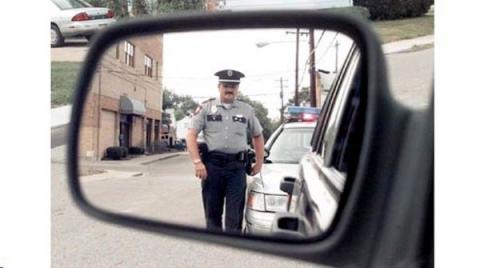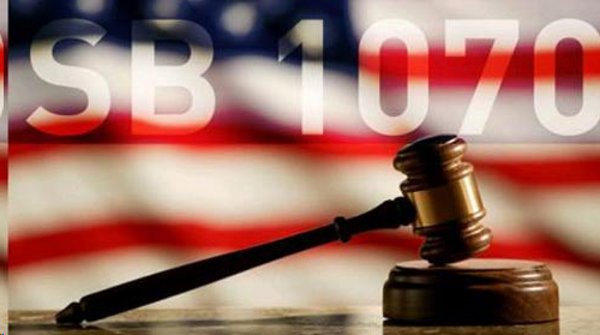‘Show Me Your Papers’ Enforcement Looms Over Immigrants in Arizona

From New America Media:
PHOENIX, Ariz. -- Emma Cervantes spends most of her time driving all over town to clean houses when she is not ensuring that everything is going well at the flower shop she owns with her six children.
She used to worry about them being pulled over by police and asked for their papers. But now, while they are protected from deportation under President Obama’s deferred action plan, she is the one at risk with the “show me your papers” provision in the state’s harsh anti-illegal immigration law, SB 1070, going into effect.
“Before, I didn’t worry too much about going everywhere, but now that they want us to show our papers, I’ll go out less,” said the 59-year-old woman from Puebla, Mexico. “I won’t be locked inside (sic), but I’ll take more precaution.”
On September 18, over the pleas of civil rights groups, U.S. District Court Judge Susan Bolton lifted an injunction on the “papers please” provision, siding with a recent U.S. Supreme Court ruling.
This means, police in Arizona now are required to inquire about a person’s immigration status if they have reasonable suspicion they are in the country illegally. Police could face lawsuits if they fail to enforce the law to the fullest extent.
Concerned that the federal district court might refuse to block the provision that they feel could lead to racial profiling, the American Civil Liberties Union (ACLU), the Mexican American Legal Defense and Educational Fund (MALDEF) and the National Immigration Law Center (NILC) filed an appeal last week with the Ninth Circuit Court of Appeals to enjoin enforcement of that harsh provision.
NILC General Counsel Linton Joaquin said that civil rights groups will continue their efforts to block this provision.
Those efforts include calling the hotline, 1-855-737-7386, if someone believes he or she was the target of racial profiling during a traffic stop.
The biggest question mark on how this portion of the law will impact immigrants like Cervantes depends on the Office of Immigration and Customs Enforcement (ICE).
“As we’ve previously emphasized, Department of Homeland Security (DHS) officials in Arizona have been directed not to respond to requests from state and local police officers for assistance in enforcing immigration laws unless the individual or individuals in question meet DHS’ enforcement priorities,” said Amber Cargile, a spokesperson for U.S. Immigration and Customs Enforcement (ICE), in a statement. “Those priorities include convicted criminals, individuals who have previously been removed from the United States and recent border crossers.”
ICE still will respond to phone calls from local police inquiring about a person’s immigration status.
“We hope that immigration fulfills what it has promised, and that if we don’t have a criminal record, it would let us stay here,” Cervantes said.

For immigrants like her, these concerns are not new. Police have been increasingly cooperating with immigration authorities in Arizona since 2007 through agreements under 287(g) signed with Maricopa County Sheriff’s Office that allowed law enforcement agencies to check the immigration status of those suspected to be undocumented. Those agreements were rescinded this past June.
For the last four years. advocates for civil rights have been documenting the impact of these “SB1070-like” enforcement policies in Arizona, leading to both a Department of Justice (DOJ) and civil rights lawsuit against Maricopa County Sheriff Joe Arpaio’s office.
“There already is racial profiling in Arizona. There’s already been abuses to some extent with Sheriff Arpaio and the kind of enforcement he has engaged in which might have been a model for the way SB 1070 was enforced,” noted Joaquin.
Arpaio hasn’t been the only one contributing to the deportation of a number of people from Arizona. Undocumented immigrants who are turned over to immigration officials after they are arrested for a serious crime or for something as minor as driving without a license could be deported under the federal Secure Communities program.
Carlos Garcia, director of PUENTE, a pro-immigrant group, said this provision of SB 1070 doesn’t change much for agencies like Phoenix Police who have already worked closely in cooperation with immigration.
“We’ll continue to ask Obama to put an end to programs like Secure Communities,” said García who anticipates there will be more acts of civil disobedience to protest against SB 1070, “There’s no other choice but for us to push to be the ones to make a change.”
Phoenix Police Chief Daniel García had said in the past that his officers will not engage in racial profiling and would enforce the law while respecting civil rights. But in a statement issued late yesterday, his department said officers were ready to enforce the law.
“An officer shall make a reasonable attempt to contact the United States Bureau of Immigration and Customs Enforcement to determine the detained person’s immigration status,” said the statement, “unless the detainee has presumptive identification, it would hinder an investigation, or it would not be practicable to do so. “
Attorney’s like Linton feel there’s no way around it because of provisions in the law that have been in effect for the last two years that allow citizens to sue a police department if they don’t believe the law is being enforced to its fullest extent.
“It’s going to promote racial profiling; it’s going to lead inevitably for people being detained for extra time because of immigration verification status,” he said.
Republican Governor Jan Brewer signed SB 1070 into law on April 23, 2010 and issued an executive order requiring police agencies to get training that would prevent racial profiling.
“It is not enough that SB 1070 be enforced. It must be enforced efficiently, effectively and in harmony with the Constitution and civil rights. I have full faith and confidence that Arizona’s State and local law enforcement officers are prepared for this task,” said Brewer in a statement. She called the “show me your papers” provision the “heart of the law.”
Back in July 2010, Judge Bolton blocked that portion of SB 1070, along with four other provisions, following a request from the DOJ that contented that these parts of the law were pre-empted by federal law. Last June, the U.S. Supreme Court agreed with Bolton, partially, and ordered her to lift the injunction on the “show me your papers” provision.
The justices, however, did leave the door open for a different challenge to the law that was picked up by civil rights groups.
Cervantes worries about these detentions and wonders how police will find enough time to do other things to ensure the community is safe as they wait for ICE to verify a person’s status.
“There’s too many of us,” she said. “God willing, we’ll turn invisible for the police.”






























































































































































































































































































































